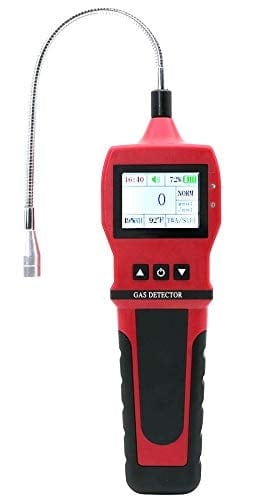
In today’s world, where safety is paramount, the importance of a gas leak detector cannot be overstated. These devices are designed to detect the presence of harmful gases in your home, providing an essential layer of protection for you and your loved ones. With the increasing reliance on natural gas for heating and cooking, understanding the functionality and significance of gas leak detectors is more crucial than ever.
Understanding Gas Leak Detectors
A gas leak detector is a specialized device that identifies the presence of combustible gases such as methane, propane, and carbon monoxide. These gases can pose serious health risks and even lead to catastrophic explosions if undetected. Gas leak detectors utilize various technologies, including electrochemical sensors, infrared sensors, and catalytic bead sensors, to monitor gas levels continuously.
Types of Gas Leak Detectors
-
Electrochemical Detectors: These are widely used for detecting carbon monoxide. They work by measuring the current produced when the gas interacts with the electrodes in the sensor.
-
Infrared Detectors: These sensors are excellent for identifying hydrocarbons such as methane and propane. They measure the absorption of infrared light by the gas, making them highly accurate.
-
Catalytic Bead Detectors: These are effective for detecting flammable gases. They operate by measuring the heat produced during the combustion of gas over a catalytic surface.
Why You Need a Gas Leak Detector
The benefits of having a gas leak detector in your home are significant:
-
Early Detection: The primary function of a gas leak detector is to alert you to the presence of harmful gases before they reach dangerous levels. Early detection can prevent health issues and potential explosions.
-
Peace of Mind: Knowing that you have a reliable device monitoring your home’s air quality can alleviate anxiety, especially for families with children or elderly members who may be more vulnerable to gas exposure.
-
Insurance Benefits: Some insurance companies offer discounts for homes equipped with gas leak detectors. This not only saves you money but also enhances your home’s safety profile.
Choosing the Right Gas Leak Detector
When selecting a gas leak detector, consider the following factors:
-
Type of Gas: Ensure the detector is suitable for the specific gas you are concerned about. Some detectors are designed to detect only one type of gas, while others can monitor multiple gases.
-
Sensitivity and Range: Look for a detector with a good sensitivity rating and a wide detection range to ensure it can respond to even the smallest gas leaks.
-
Power Source: Gas leak detectors can be battery-operated or plugged into an electrical outlet. Consider your home’s layout and whether you prefer a more portable or fixed option.
-
Additional Features: Many modern detectors come with added features such as digital displays, smartphone connectivity, and voice alerts, which can enhance usability and safety.
Maintenance and Best Practices
To ensure your gas leak detector functions effectively, regular maintenance is key:
-
Test Monthly: Check the detector’s functionality at least once a month by pressing the test button.
-
Replace Batteries: If your device is battery-operated, replace the batteries as needed, typically once a year.
-
Follow Manufacturer Guidelines: Always adhere to the manufacturer's instructions regarding installation, usage, and maintenance.
Conclusion
Investing in a gas leak detector is not just a safety measure; it’s a proactive step toward protecting your home and family. By understanding the different types of detectors, their benefits, and maintenance practices, you can ensure a safer living environment. Prioritize safety and peace of mind—make chlorine gas detector a crucial part of your home safety plan.


